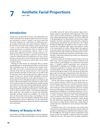Search
for
Sort by
Research
870-900 / 939 resultsresearch Overnight Loss of Pigmented Hair in Autoimmune Autonomic Neuropathy Treated with IVIg
IVIg treatment improved symptoms but caused permanent dark hair loss.

research The Impact of Smoking and Lifestyle Factors on Hair Transplant Outcomes in Patients with Androgenic Alopecia
Smoking and alcohol worsen hair transplant results.
research Effects of RF Electric Currents on Hair Follicle Growth and Differentiation: A Possible Treatment for Alopecia
RF-based therapies might help treat hair loss.
research Can Plant Extracts Help Prevent Hair Loss or Promote Hair Growth? A Review Comparing Their Therapeutic Efficacies, Phytochemical Components, and Modulatory Targets
Plant extracts can help prevent hair loss and promote hair growth.

research The Effects of Environmental Pollutants and Exposures on Hair Follicle Pathophysiology
Environmental pollutants can damage hair health and cause hair loss.

research Pilose Antler Extract Promotes Hair Growth in Androgenic Alopecia Mice by Promoting the Initial Anagen Phase
Pilose antler extract helps hair grow in mice with a type of hair loss by speeding up the growth phase.

research The Pattern and Clinical Profile of Alopecia Areata: Panoramic Review, Update, and Advances on Etiopathogenesis, Associated Factors, Diagnosis, Complications, Management, and Prognosis in Treatment 2023
Alopecia areata causes sudden hair loss, has genetic links, and can be managed but not cured.

research Retrospective Assessment of Follicular Unit Density in Asian Men With Androgenetic Alopecia
Asian men with hair loss have different follicular densities: East/Southeast 61.1, South 63.5, West 63.6 FU/cm².

research Recurring Chemotherapy-Associated Alopecia Areata: Case Report and Literature Review
Chemotherapy may cause recurring hair loss due to an autoimmune response.

research Protective Effects of Korean Red Ginseng Against Oxidative Stress-Induced Damage in Human Hair
Korean Red Ginseng may help protect hair from damage and promote growth.

research CME Examination for February 2010 Issue of the Journal of the American Academy of Dermatology
The document provided instructions for completing a CME exam on diagnosing and managing hair loss.

research Prooxidant And Antioxidant Action Of 4-(4-Phenoxybenzoyl)benzoic Acid Derivatives
4-(4-Phenoxybenzoyl)benzoic acid derivatives can both increase and decrease certain types of reactive oxygen species, and may be relevant to hair loss.

research Oxidative Stress: Insights into the Pathogenesis and Treatment of Alopecia
Hair loss can be caused by stress, aging, and harmful substances that create an imbalance in the body's natural processes.
research Lymphocytes, Neuropeptides, And Genes Involved In Alopecia Areata
Alopecia areata is an autoimmune disease where T cells attack hair follicles.
research CRF Receptor Antagonist Astressin-B Reverses and Prevents Alopecia in CRF Over-Expressing Mice
Astressin-B can reverse and prevent hair loss in stressed mice.

research Simultaneous Determination of Quercitrin, Afzelin, Amentoflavone, Hinokiflavone in Rat Plasma by UFLC-MS-MS and Its Application to the Pharmacokinetics of Platycladus Orientalis Leaves Extract
Researchers developed a method to measure plant compounds in rat blood and found they are quickly absorbed and eliminated within 36 hours.

research Relationship of Diet to Androgenetic Alopecia
Diet affects baldness; eat balanced, less animal fat, more fruits, vegetables, and cereals.

research Cell Therapy for Androgenetic Alopecia: Elixir or Trick?
Stem cell therapies could be a promising alternative for hair loss treatment, but more research is needed to understand their full potential and safety.

research Emerging Interactions Between Skin Stem Cells and Their Niches
Skin stem cells interacting with their environment is crucial for maintaining and regenerating skin and hair, and understanding this can help develop new treatments for skin and hair disorders.

research Timing of Expression of the Core Clock Gene Bmal1 Influences Its Effects on Aging and Survival
The timing of when the gene Bmal1 is active affects aging and survival, with its absence during development, not adulthood, leading to premature aging.

research Stem Cells in Skin Regeneration, Wound Healing, and Their Clinical Applications
Stem cells are crucial for skin repair and new treatments for chronic wounds.

research Alopecia Areata: Immune Function and Treatment Options
The cause of alopecia areata was unknown, and while various treatments existed, no best treatment was agreed upon.
research Cosmetic Adverse Effects of Antiseizure Medications: A Systematic Review
Some antiseizure medications can cause cosmetic problems like hair loss, excessive hair growth, acne, and gum overgrowth.

research Research on the Balance of Thiol-Disulfide in Blood Serum in Women with Telogen Effluvium
The balance of thiol-disulfide in women with hair loss is affected but not damaged.

research Seven Aesthetic Facial Proportions
The document concludes that ideal facial proportions are guided by specific measurements and symmetry to enhance beauty, but individual characteristics must be considered.

research Investigation of the Role of SIRT3, SIRT7, NFATC1, and PDL-1 Genes in Androgenetic Alopecia
SIRT3 and SIRT7 genes may play a role in hair loss.

research Evaluation of the Safety and Effectiveness of Oral Minoxidil in Children: A Systematic Review
Low-dose oral minoxidil is safe for treating children's hair disorders.
research Wigs And Alopecia Areata: Psychosocial Impact And Economic Considerations
Wigs help improve self-esteem and quality of life for people with hair loss from alopecia areata.

research The Potential of Regulatory T Cell-Based Therapies for Alopecia Areata
Treg cell-based therapies might help treat hair loss from alopecia areata, but more research is needed to confirm safety and effectiveness.